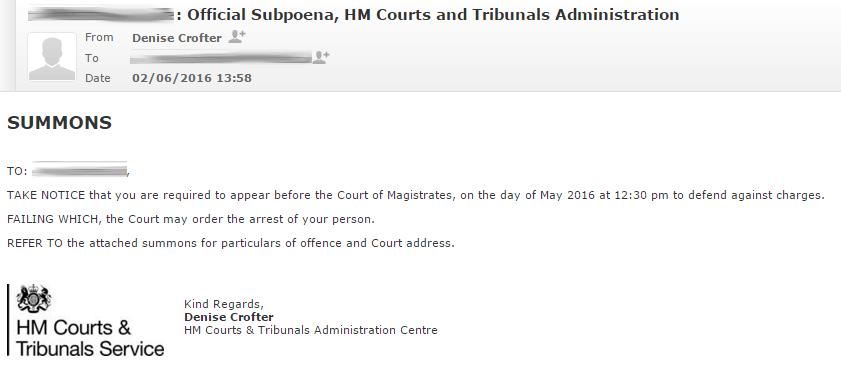I’ve had a couple of these, rather pernicious, spam emails recently, which purport to be from Her Majesty’s Courts & Tribunal Service and stating I need to attend court to hear the charges against me. Quite what the charges are, and when the court date is, I can’t tell from the email, unless I open the attached document.

Having had experience of friends and family panicking at various spam emails and asking me if they are legitimate, it might be worth pointing out what stands out about these spam emails, identifying them as dubious.
- The email title refers to a subpoena, but then suggests in the body that you would need to defend against charges. I subpoena is only used for to compel someone to provide evidence, and only in a criminal case. For civil proceedings, it would be a Witness Summons and if you were being charged with something criminal, you would have had a visit from the Constabulary first.
- It’s missing the date of the court session or even the name of the court from the body of the email.
- It’s threatening you with arrest if you don’t comply, but in order to work out where you need to go, you need to open the (virus-laden) attached Word document.
- The image for the HM Courts and Tribunals Service is actually a link off to a site called “TheyWorkforYou”, unconnected to HM Government.
- And finally, perhaps the most glaringly obvious clue that it is a scam: Any summons to court would be either hand delivered or delivered through the post, NEVER via email.
As with any email that you aren’t normally expecting (such as the one above), always follow the old Green Cross Code mantra:
- STOP!
- LOOK!
- LISTEN (to your friendly local IT expert)!



0 Comments